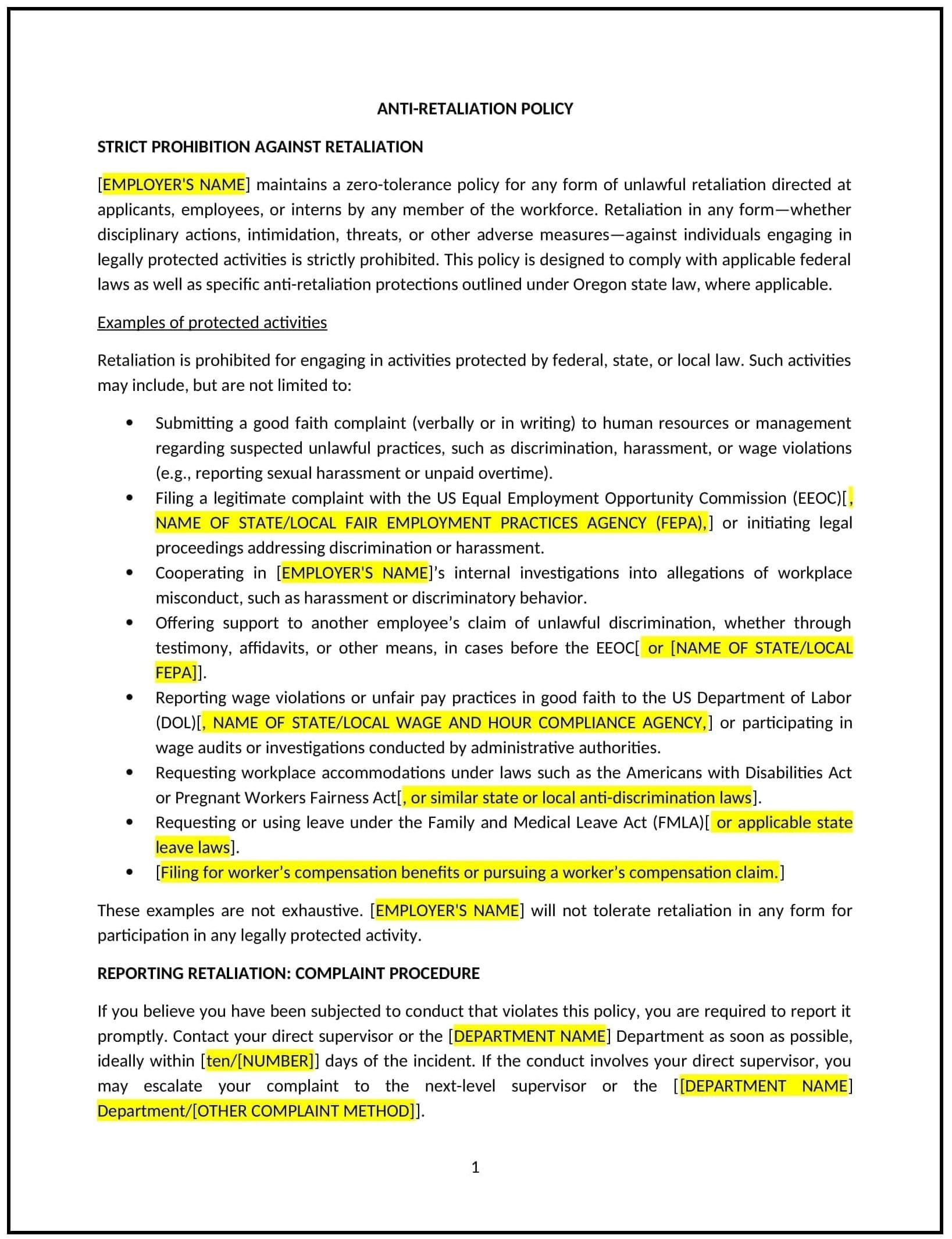Got contracts to review? While you're here for policies, let Cobrief make contract review effortless—start your free review now.

Customize this template for free
Anti-retaliation policy (Oregon)
This anti-retaliation policy is designed to help Oregon businesses create a safe and supportive environment for employees who report concerns or participate in investigations. It outlines procedures for preventing retaliation and addressing any incidents that occur.
By adopting this policy, businesses can promote transparency, protect whistleblowers, and maintain a positive workplace culture.
How to use this anti-retaliation policy (Oregon)
- Define retaliation: Clarify what constitutes retaliation, such as demotion, harassment, or termination in response to reporting concerns.
- Establish reporting procedures: Outline steps for employees to report retaliation, including anonymous reporting options.
- Address consequences: Specify penalties for retaliation, such as warnings, suspension, or termination.
- Provide support: Offer resources for employees who experience retaliation, such as counseling or legal assistance.
- Train managers: Educate supervisors on recognizing and preventing retaliation.
- Review and update: Assess the policy annually to ensure it aligns with evolving business needs and legal requirements.
Benefits of using this anti-retaliation policy (Oregon)
This policy offers several advantages for Oregon businesses:
- Promotes transparency: Encourages employees to report concerns without fear of retaliation.
- Protects whistleblowers: Demonstrates the business’s commitment to protecting employees who report misconduct.
- Enhances trust: Builds trust between employees and management, fostering a positive workplace culture.
- Reduces risks: Minimizes the likelihood of legal issues and reputational damage related to retaliation.
- Aligns with best practices: Offers a structured approach to managing and preventing retaliation.
Tips for using this anti-retaliation policy (Oregon)
- Communicate the policy: Share the policy with employees and include it in the employee handbook.
- Provide training: Educate managers on recognizing and preventing retaliation.
- Monitor compliance: Regularly review workplace interactions and address any issues promptly.
- Address incidents promptly: Take corrective action if retaliation is identified, ensuring consequences are enforced.
- Update regularly: Assess the policy annually to ensure it aligns with evolving business needs and legal requirements.